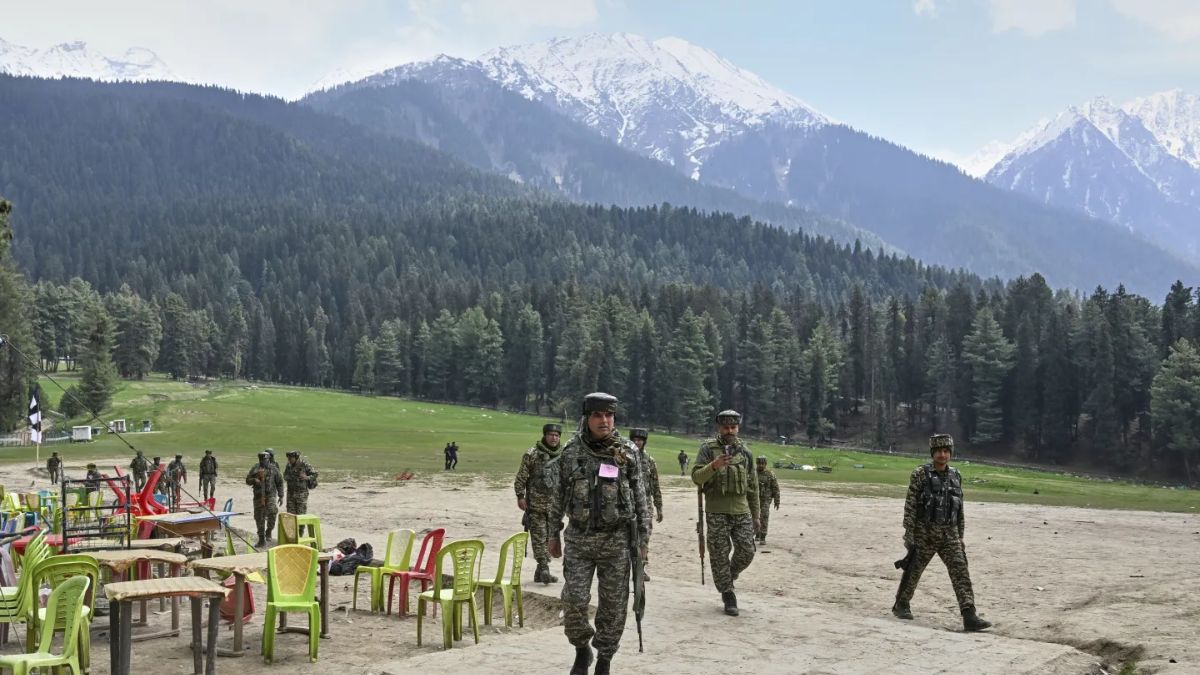The Pahalgam terror attack, in which Pakistan-backed and trained terrorists killed 26 civilians , was planned by Pakistan’s intelligence agency ISI and the terror group Lashkar-e-Taiba (LeT) on orders from Pakistan’s political and military leadership, The Times of India reported, citing security sources.
Sources compared the plot to the 26/11 Mumbai attacks, saying it was an ISI-LeT operation involving only Pakistani terrorists. The ISI reportedly instructed Pakistan-based LeT commander Sajid Jutt to deploy foreign terrorists already operating in Jammu and Kashmir, avoiding the use of local Kashmiri militants to keep the plan secret. Only minimal local support was allowed on a “need-to-know” basis.
According to the report, the attack was led by Sulaiman, who is a former Pakistani special forces commando. He had trained at LeT’s Muridke centre in Pakistan’s Punjab before infiltrating into Jammu in 2022. Two other Pakistani terrorists were part of the team.
Satellite phone records show that Sulaiman was in the Tral forest on 15 April, indicating he stayed close to the attack site at Baisaran for nearly a week before striking.
Sulaiman was also involved in an attack on an Army truck in April 2023. While J&K Police initially suspected Pakistani terrorists Hashim Musa and Ali Bhai were involved, the investigation has so far confirmed only Sulaiman’s role.
Pakistan has long been accused of backing terrorists and using it as a tool of state policy.
On 22 April, terrorists backed by Pakistan killed 26 innocent civilians in Pahalgam, sparking a strong reaction from New Delhi. India accused Pakistan of cross-border terrorism and responded by suspending the Indus Waters Treaty and expelling Pakistani diplomats.
Impact Shorts
More ShortsIndia launches Operation Sindoor
In retaliation, India carried out precision strikes on nine terror camps in Pakistan and Pakistan-occupied Kashmir. Defence Minister Rajnath Singh said nearly 100 terrorists were killed in these operations.
Pakistan called a ‘global exporter of terror’
Experts often describe Pakistan as a “global exporter of terror” due to its ongoing support for extremist groups. Pakistan’s military and intelligence agencies provide safe havens, funding, and training to groups like Lashkar-e-Taiba and Jaish-e-Mohammed, which have carried out attacks in South Asia and beyond.
Terrorism used as a tool by Pakistan’s military
These terror groups help Pakistan’s military maintain influence and justify its power within the country. Pakistan uses them to spread violence and target civilians, while any Indian retaliation is used by the military to stir public fear and tighten its control.
Same tactics during Kargil War
Pakistan used similar tactics during the Kargil War, when its forces secretly occupied Indian positions and falsely presented the conflict as a local uprising. India’s counter-offensive eventually forced Pakistan to withdraw.
Long history of harbouring terrorism
India, Afghanistan, Iran, and Western nations have long accused Pakistan of sheltering terrorists and using them to pursue its foreign policy goals. Incidents like the 2008 Mumbai attacks and the discovery of Osama bin Laden hiding in Pakistan have only deepened these concerns.
)